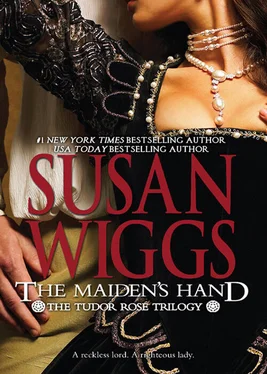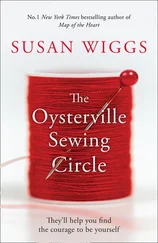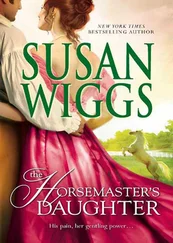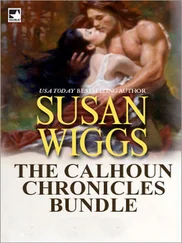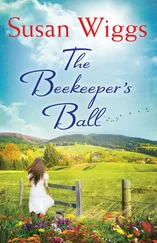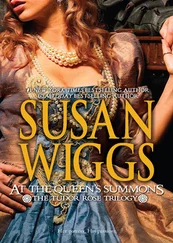Praise for the novels of #1 New York Times bestselling author
SUSAN WIGGS
“Wiggs is one of our best observers of stories of the heart. Maybe that is because she knows how to capture emotion on virtually every page of every book.”
—Salem Statesman-Journal
“Susan Wiggs is a rare talent! Boisterous, passionate, exciting! The characters leap off the page and into your heart!”
—Literary Times
“[A] lovely, moving novel with an engaging heroine…Readers who like Nora Roberts and Susan Elizabeth Phillips will enjoy Wiggs’s latest. Highly recommended.”
—Library Journal on Just Breathe (starred review)
“Tender and heartbreaking…a beautiful novel.”
—Luanne Rice on Just Breathe
“Another excellent title to [in] her already outstanding body of work.”
—Booklist on Table for Five (starred review)
“With the ease of a master, Wiggs introduces complicated, flesh-and-blood characters into her idyllic but identifiable small-town setting.”
—Publishers Weekly on The Winter Lodge
(starred review, a PW Best Book of 2007)
The Maiden’s Hand
Susan Wiggs
The Tudor Rose Trilogy
Book Two

To my fellow writer
Barbara Dawson Smith,
with love and gratitude for all the years of friendship.
I wish to thank Joyce Bell, Betty Gyenes and Barbara Dawson Smith for generously giving their time and support. Also, thanks to the many members of the GEnie ®Romance Exchange, an electronic bulletin board, for so many interesting discussions.
Special thanks to Trish Jensen and Kathryn van der Pol for their proofreading skills.
I am falser than vows made in wine.
—William Shakespeare
As You Like It, Act III, Scene v
Prologue
Chapter One
Chapter Two
Chapter Three
Chapter Four
Chapter Five
Chapter Six
Chapter Seven
Chapter Eight
Chapter Nine
Chapter Ten
Chapter Eleven
Chapter Twelve
Chapter Thirteen
Chapter Fourteen
Chapter Fifteen
Chapter Sixteen
Chapter Seventeen
Chapter Eighteen
Epilogue
Oliver de Lacey had died badly. He had gone blubbering and pleading to the hangman’s noose, and his last act as a mortal man had been to piss himself.
That morning, he had arisen in his dank cell in Newgate, begged one last time to sire a child on the warden’s daughter, lied through his teeth to the priest who came to grant him absolution, and vomited up his last breakfast.
Now he was paying the ultimate price for his many sins.
After the hanging, Oliver’s descent into hell was not what he expected. Indeed, it bordered on the peculiar. Darkness, aye, but what were those evil slits of gray light and that creaky, lumbering sound? And if he had left his mortal body behind, why did he feel this damnable pain in his neck? Why did he smell fresh-cut wood?
It was new and particularly awful for a man who had not expected to die by execution as a common criminal, of all things. He had always known he would die young. But he had worked hard to ensure himself a glorious demise. He had dreamed of perishing while fighting a duel, racing horses, perhaps even while bedding another man’s wife.
Not—God forbid—swinging by the neck while a bloodthirsty crowd jeered at him.
At least no one knew it was Lord Oliver de Lacey, Baron Wimberleigh, who had died at dawn. He had been arrested, tried and sentenced in his guise of Oliver Lackey—a bearded, common rapscallion who had incited one riot too many.
Thank heaven for small favors. He had spared his family a great shame. They had all gone abroad until the spring; they would come back to find that Oliver had vanished without a trace.
Ah, what a waste, he thought in disgust as his strange conveyance transported him to eternal damnation. He had wanted to make his mark in his short time on earth. In pursuit of this, he had loved every woman he could find, fought every battle he could join, sampled every delicacy, read every book, embarked on every adventure available to an affable young lord. He had lived fast and hard and voraciously with the knowledge that his illness would one day conquer him.
And this morn, an hour before cock crow, he had died a coward’s death.
“They say he died badly.” The voice penetrated Oliver’s hell-bound chariot. “Did you see?”
God’s light, but it was a horrid, unholy voice.
“I saw.” This voice, in contrast, was as sweet as the trill of a lark at dawn. “He showed no dignity whatsoever. I can’t think why Spencer was so insistent about taking this one.”
Spencer? The devil was called Spencer?
“Spencer,” said the ugly voice, “like the Lord above, works in mysterious ways. Does he know you have come?”
“Of course not,” said the woman. “He thinks I only help with the ciphering. He must never know.”
“Well, pox and pestilence, I don’t like it. Not one bit.”
Amen, thought Oliver. Death was getting stranger by the moment. Descending into hell was an odd business indeed.
The creaking and jangling ceased abruptly.
Now what? Oliver wondered. He braced himself for an onslaught of fire and brimstone.
“Careful, now. Is anyone about?” the man asked.
“Just the chief grave digger in his hut yonder. You did give him plenty of fortified wine?”
“Oh, aye. He won’t stir his bones.”
“But I see a light in the window,” the woman said.
“Right. We’d best put on a good show, then. Move the cart just to the edge of the pit. Let’s get this one out.” The chariot lurched. “Easy now. Easy! Frigging slump-backed nag. Almost backed into the pit. Hand me that chisel. I’ll just pry open this panel.”
A screeching sound rent the air, followed by an equine whinny.
“Shrouds and shambles!” the man hissed. “Mind the box! You’ll spill it.”
A square of light opened at Oliver’s lifeless feet. He began tilting, sliding, until his remains poured down a steep incline. He landed on something dusty and infinitely more noxious than anything he had done inside his canions.
“Oh, no,” whispered the female voice. “Dr. Snipes, what have we done?”
What indeed, Oliver wondered.
“He’s fallen into the pit,” she said as if she’d heard his question.
Ah, thought Oliver. At last it begins to make sense. Hell was a pit, exactly as Messer Dante had described. Except this place was cold. Bone-chillingly cold.
“We’ve got to get him out,” said the man called Snipes.
Yes, yes, please. Oliver tried to speak, but no sound emerged from his brutalized throat.
“Dr. Snipes, look! He’s come around. Sweet mercy, he is saved!”
Saved?
Oliver saw a pair of shadows looming above him, the sky a cloudy dark gray behind them.
“Mr. Lackey? Can you hear me?” the woman called out.
“Yes.” The word came out as a thin wheeze.
“He speaks! God be praised!”
Why did this instrument of the Devil praise God? And why did she address him as Lackey? Surely the Devil knew his true identity.
“Mr. Lackey, we must get you out of there,” Snipes said.
“Where am I?” There. He had spoken. A horrible rasp, to be sure, but his speech was intelligible.
“I, er, that is, you’re near the City ditch across from Greyfriars,” Snipes said. “In a, er, in a pauper’s grave.”
“This isn’t hell?” Oliver asked stupidly.
“Some would say aye,” the woman murmured.
Читать дальше
